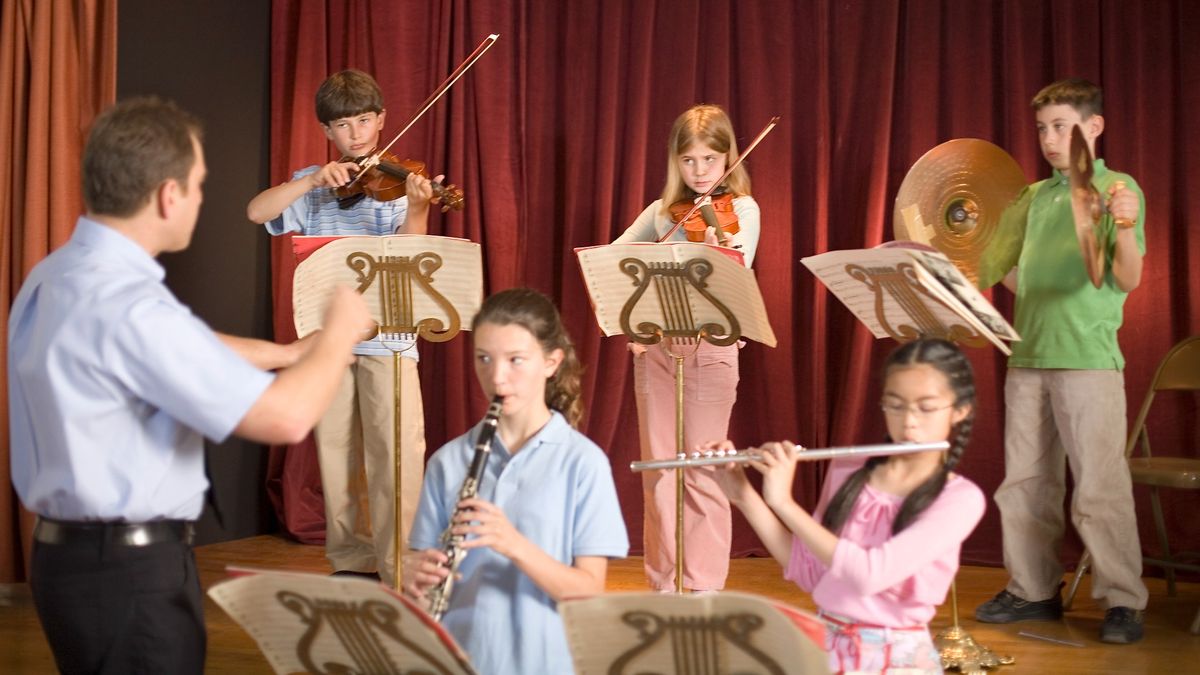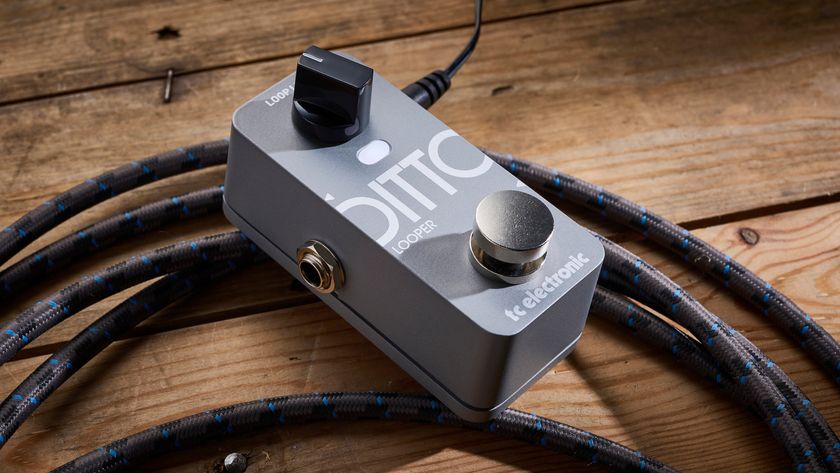Research shows that learning to play an instrument as a child delivers mental health benefits as an adult
Learn an instrument as a child – get a sharper brain as an adult

Learning to play an instrument is no mean feat and it’s an established fact that the sooner you start – while your brain and agile fingers are still malleable and up for it – the sooner you'll crack it and the sooner a lifetime of loving music (and being just that little bit cooler than anyone else) can start.
What isn’t so well known is that the neural pathways you can open up as a child, learning tricky guitar fingering, reaching for complex chords and shapes on a piano and rapidly mentally processing written notation into physical action, can lead to a sharper, more capable mind in later years.
Yes, just as a regular workout will keep your mind and body in good shape, so it seems that taxing the cerebrum via the noble art of music making provides similar benefits. A paper produced by the University of Edinburgh has identified greater lifetime-long improvements on tests for cognitive ability for those people who did learn to play an instrument, versus those who did not.
What’s more, even when factors such as education, childhood cognitive ability, social status and health in older age were taken into account, musicians still gained an uplift in mental skills that can be directly attributed to their love of music.
The study’s participants were part of a test on individuals born in Edinburgh and the Lothians, in Scotland in 1936. All had previously taken part in the Scottish Mental Survey of 1947 and as such had their results on file allowing a direct comparison between their performance then and now.
Each retook the cognitive ability test they took as an 11 year old, including tests on verbal reasoning, spatial awareness and numerical analysis. They were also asked about their musical experience and the team then used statistical models to seek out links between their changes in thinking skills between 11 and 70 and their level of experience in playing a musical instrument.
Of the 336 participants 117 had some experience of playing a musical instrument at some point in their childhood and it was this group that demonstrated the best results with small but notable changes being directly attributable to their musical skill.
Get the MusicRadar Newsletter
Want all the hottest music and gear news, reviews, deals, features and more, direct to your inbox? Sign up here.
“These results add to the evidence that activities that are mentally challenging, such as learning to play a musical instrument, might be associated with better thinking skills,” says Judith Okely, a lecturer in psychology at Napier University. While Katie Overy, senior lecturer at the University of Edinburgh’s Reid School of Music, said: “Music has so much to offer as a fun, social activity. It is exciting to find that learning to play a musical instrument may also contribute to healthy cognitive ageing.”
The study was funded by Age UK and the Economic and Social Research Council and was published in the journal Psychological Science.


MusicRadar is the number 1 website for music makers of all kinds, be they guitarists, drummers, keyboard players, djs or producers...
- GEAR: We help musicians find the best gear with top-ranking gear round-ups and high- quality, authoritative reviews by a wide team of highly experienced experts.
- TIPS: We also provide tuition, from bite-sized tips to advanced work-outs and guidance from recognised musicians and stars.
- STARS: We talk to musicians and stars about their creative processes, and the nuts and bolts of their gear and technique. We give fans an insight into the actual craft of music making that no other music website can.

“I didn’t even realise it had synthesizer on it for decades”: This deep dive into The Beatles' Here Comes The Sun reveals 4 Moog Modular parts that we’d never even noticed before

Is Sabrina Carpenter the world’s biggest Teenage Engineering fan? Please, please, please say that it’s true



![Chris Hayes [left] wears a purple checked shirt and plays his 1957 Stratocaster in the studio; Michael J. Fox tears it up onstage as Marty McFly in the 1985 blockbuster Back To The Future.](https://cdn.mos.cms.futurecdn.net/nWZUSbFAwA6EqQdruLmXXh-840-80.jpg)






